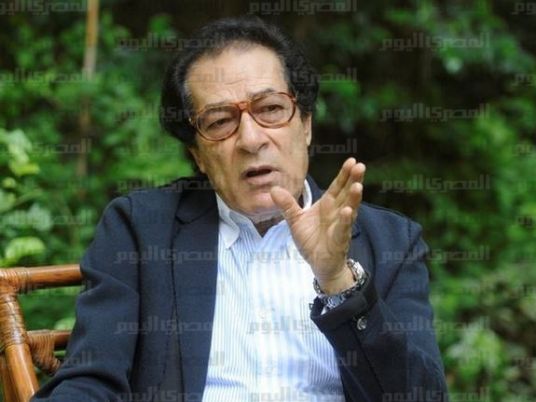
Former Minister of Culture Farouk Hosni objected to the banning of the film “Exodus: Gods and Kings” in Egypt and the Arab world, saying that the media should refute the historical allegations in the film with facts while its technical side should be left for the audience and film critics to judge.
In remarks to the Asharq Al-Awsat newspaper on Sunday, Hosni said history films usually have historical and a political goals. “This film claims that the Jews built the pyramids,” he said. “It is well known that Israel stands behind it.”
He added that literary and cinematic works always tackle historical events with a new vision. “Naguib Mahfouz based his novel Struggle of Thebes on real events yet gave it a creative form,” he said.
He said the film claims that the Pharaoh at the time of the Exodus was Ramses II, which cannot be true because Rameses died at the age of 92 while the religious story says the Pharaoh drowned in the water. “How could a 92-year-old ride a chariot and hunt Moses?” he wondered.
He explained that the Jews entered Egypt with the Hyksos and that Rameses II kept them in the Land of Goshen where they built their capital with raw bricks. “The ancient Egyptians never used this method of construction,” he said.
“All historians around the world know that the Pharaohs never allowed foreign hands to build their holy temples,” he added. “Also, the Jews came to Egypt during the 12th Dynasty while the pyramids were built during the Fourth Dynasty.”
He said Israel has repeatedly claimed that it was the Jews who built the pyramids. “I once said in an interview with the Italian television that if that was true, why did they not build themselves pyramids again in Israel?”
“The Ministry of Culture should review scenarios of films shot in Egypt to make sure they do not change historical facts,” he said.
Edited translation from Al-Masry Al-Youm
